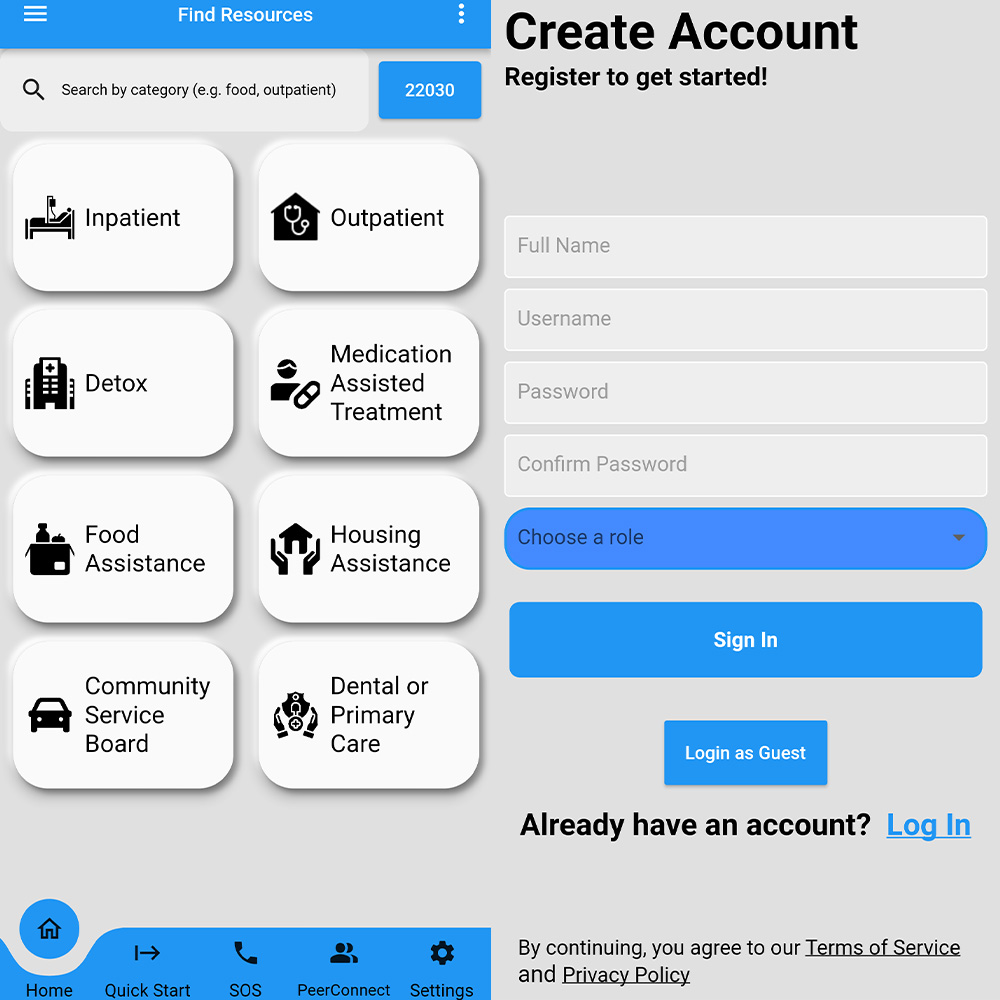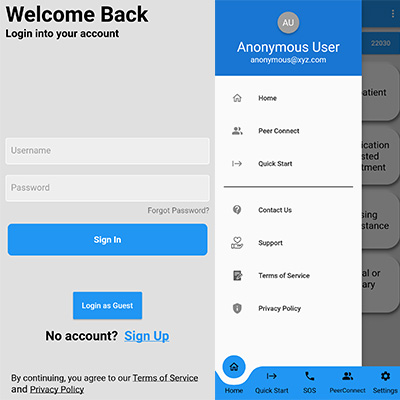In This Story

George Mason University graduate student Rebecca Leung is part of a team finding ways to use smart technology in order to help those who are struggling with or recovering from substance use disorder (SUD).
“I have always wanted to use smart technology to help different populations,” said Leung, who is working on her master of social work degree.
Leung is teaming up with other Mason researchers to develop an app called iCONNECT, which is intended to help peer support specialists, individuals in recovery from SUD, and their families connect with the specific resources needed to sustain recovery.
Leung was a 2021-22 fellow in Mason’s National Science Foundation Research Traineeship (NRT) program, which is training the next generation of leaders to take on some of the most challenging problems faced by society today. The program, led by Mason researcher Siddhartha Sikdar, is a part of the Center for Adaptive Systems of Brain-Body Interactions (CASBBI) program.
During the fellowship, Leung teamed with Dylan Scarton, a third-year PhD student in neuroscience, and Jonathan Mbuya, a PhD student in computer science. The team calls themselves the Good Troublers, and they are mentored by Mason researcher Holly Matto, as a core CASBBI faculty member and mentor in the NRT program, who studies addiction and recovery.
Matto, who was working on her own app to help with mental disease, told Leung about the program and recommended that she apply for it. “I saw an opportunity to work with an interdisciplinary team to solve a social problem that I was keen on solving,” said Leung. After interviewing with CASBBI faculty Leung was chosen to be part of the cohort. “Fortunately, I met Dylan and Jonathan – who were also motivated to help with the opioid epidemic,” said Leung.

“The app will have immediate local impact on the ways in which peer support specialists, individuals in recovery from substance use, and their families are able to connect with the specific resources needed to sustain recovery,” said Matto.
“If someone needs transportation to get to appointments or they need to find a methadone clinic or inpatient places, we put all the local resources together in the app,” said Leung. “It turns out it's very hard to Google, and even when you go to [the Substance Abuse and Mental Health Services Administration] to look for resources, you don't know if they're available or if the address or hours are updated.”
“The three of us have been personally affected by the opioid epidemic in different ways, and we're motivated to try to address that crisis in some form or fashion,” said Scarton. “We're designing the app with accessible user interface considerations, to minimize the number of clicks and present the information very clearly, for anyone not familiar with this domain like a caregiver, family member, concerned friend.”
Working with the nonprofit The Chris Atwood Foundation, the team spoke with multiple peer recovery specialists, individuals who have history with either mental health or substance use issues. These certified peer recovery specialists consult and guide individuals who are struggling with those issues, as well as their family members.
CAF is a nonprofit organization that provides free harm reduction, and recovery support services and resources. Daniel Adams, a certified peer recovery specialist at CAF, is working alongside the Mason research team as they develop iCONNECT.
“Through The Chris Atwood Foundation we realized that a big need of theirs is connecting individuals in recovery with necessary resources,” said Scarton. “That’s why we're currently developing a smartphone application to address that need.”
“People caught up in substance use and trying to recover have limited information about the resources available to them,” said Adams. “As a peer recovery specialist, you always have resources at your fingertips.”
The team has provided the first Android version of the app to community partners for testing. The peer recovery specialists will continue to test out iCONNECT once it is coded to the Apple platform, before being released to a limited number of users in the county for further feedback.
CAF is in the process of developing a peer drop-in center near Mason’s Fairfax Campus for community members to use. Mason’s Student Support and Advocacy Center also provides resources for individuals dealing with substance use issues on and off campus such as recovery and support meetings.
“It's been a blessing to partner with George Mason University,” said Adams. “This app is a tremendous idea and something that I can pass on to the individuals I help and teach them how to be self-reliant in a positive way.”
